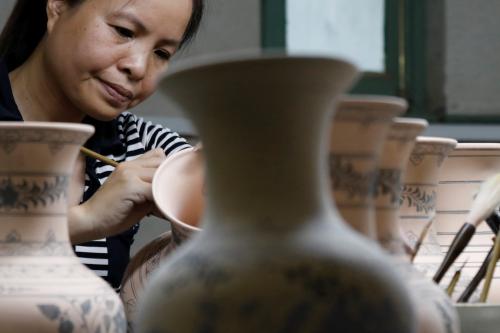Given the profound socioeconomic challenges posed by the COVID-19 pandemic, it is imperative that Vietnam make full use of its human capital. With women making up 50 percent of the population, encouraging entrepreneurship among them is central to the National Strategy on Gender Equality 2021–30, one goal of which is for women-owned businesses to account for 27 percent of all enterprises by 2025 and 30 percent by 2030. Although a number of entrepreneurship training programs for women have been launched, they have not been very effective because they do not adequately recognize the distinct needs and unique challenges of women entrepreneurs.
Our qualitative study of one such program, Future for Women, indicates that women’s perceived needs are mainly shaped by female identity conflicts, a narrow view of entrepreneurship, and limited information about supports. If we fail to address these problems, future interventions targeted exclusively to women entrepreneurs may not have the intended effects.
Watch 2021 Echidna Global Scholar Tran Tran discuss her research to promote entrepreneurship among young women in Vietnam.
This paper offers three types of recommendations for Vietnamese policymakers and female entrepreneurship advocates:
- Creation of a supportive institutional environment;
- Recognition of women’s unique needs and interests; and
- Gender-responsive programs that carefully balance short-term needs and long-term goals.






